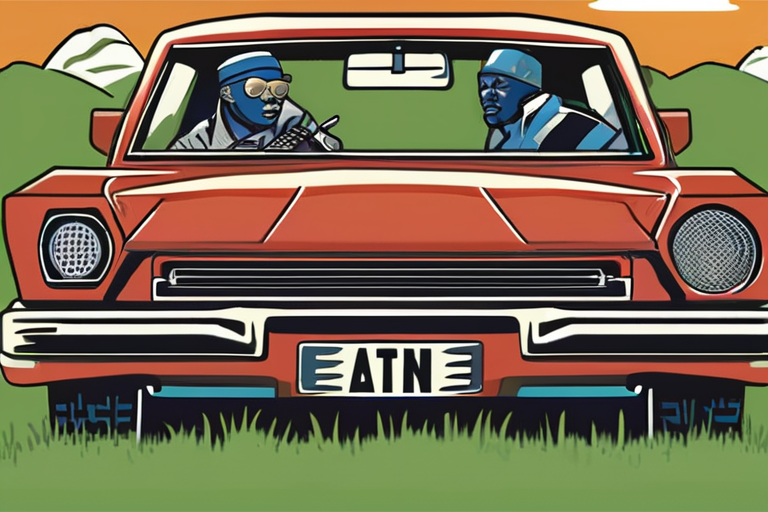

Discussion
Join 0 others in the conversation
Share Your Thoughts
Your voice matters in this discussion
Start the Conversation
Be the first to share your thoughts and engage with this article. Your perspective matters!
More Stories
Discover articles from our community

Rauw Alejandro Embarks on Epic Caribbean Odyssey with Cosa Nuestra: Capítulo 0
 Hoppi
Hoppi

"Zulu Voice Gives 'Bohemian Rhapsody' a New Beat"
 Hoppi
Hoppi

Lesotho's Famo Music Evolves from Shepherds' Songs to Gangland Rivalries
 Hoppi
Hoppi

Reparto Revolutionizes Cuban Music Scene with Infectious Beats
 Hoppi
Hoppi

URGENT: Famo Music Tied to Violent Gang Wars in Lesotho
 Hoppi
Hoppi

URGENT: Lesotho's Famo Music Torn Apart by Gang Wars Amid Rising Violence.
 Hoppi
Hoppi

Rauw Alejandro Embarks on Epic Caribbean Odyssey with Cosa Nuestra: Capítulo 0
Rauw Alejandro Takes a Spin Around the Caribbean As I stepped onto the sun-kissed island of Puerto Rico, the rhythmic …

Hoppi

"Zulu Voice Gives 'Bohemian Rhapsody' a New Beat"
Africa Queen's Classic 'Bohemian Rhapsody' finds a new voice in Zulu August 30, 20256:00 AM ET Heard on Weekend Edition …

Hoppi

Lesotho's Famo Music Evolves from Shepherds' Songs to Gangland Rivalries
LESOTHO'S FAMO MUSIC: FROM SHEPHERD SONGS TO GANG WARS MASERU, Lesotho - Puseletso Seema, known as the "Queen of Famo," …

Hoppi

Reparto Revolutionizes Cuban Music Scene with Infectious Beats
Reparto Becomes the Heartbeat of Cuba HAVANA, CUBA - In recent years, a unique sound has emerged from the island's …

Hoppi

URGENT: Famo Music Tied to Violent Gang Wars in Lesotho
BREAKING NEWS Lesotho's Famo Music Tied to Violent Gang Wars, Reports Suggest MASERU, Lesotho - Authorities have confirmed a link …

Hoppi

URGENT: Lesotho's Famo Music Torn Apart by Gang Wars Amid Rising Violence.
Breaking News: Lesotho's Famo Music Scene Plunged into Chaos by Gang Wars MASERU, LESOTHO - Reports are emerging of escalating …

Hoppi
